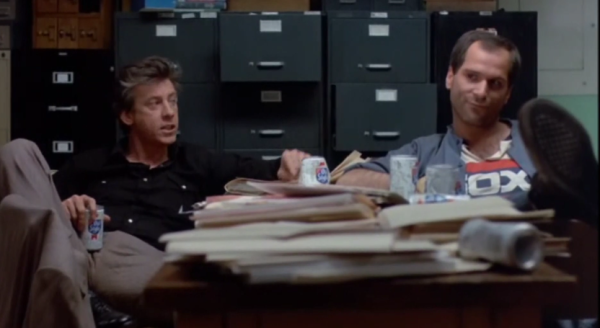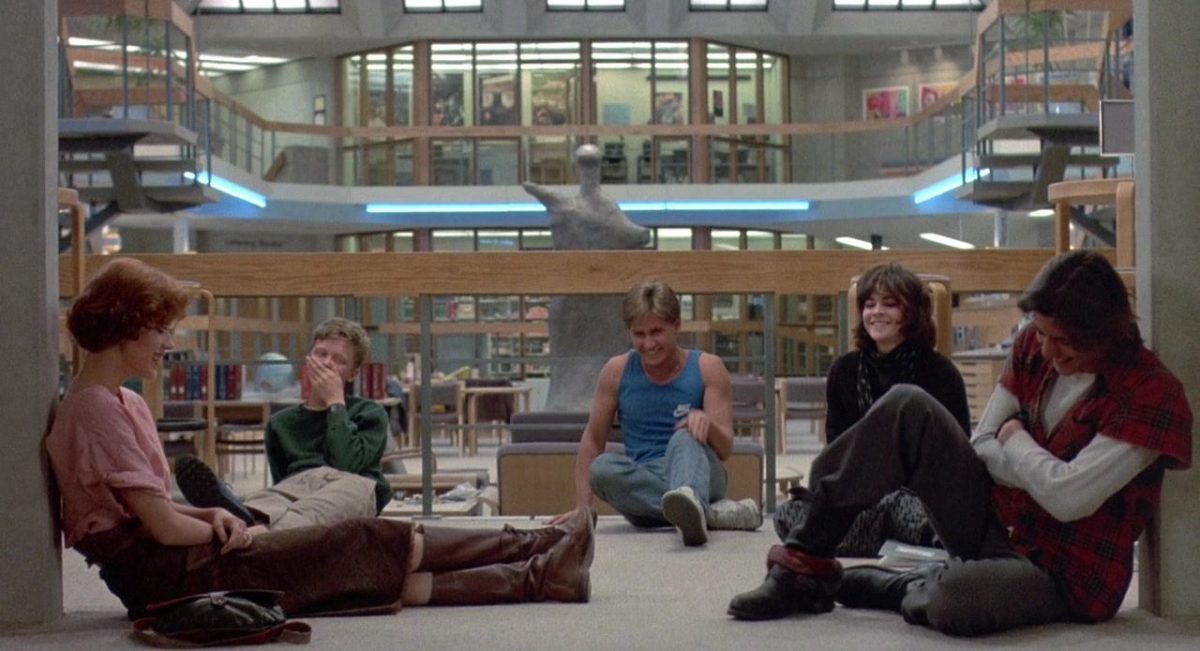This year marks the 40th anniversary of the release of The Breakfast Club(1985), a classic in the movie world. It’s iconic for its rawness and the theme of the judgment of others and connection. But the question is: Does this movie’s criticisms of stereotypes and conformity still apply to high schools today?
On the surface, The Breakfast Club is about a group of teenagers who are confined to a library for Saturday detention. They confront the insecurities that authoritarian figures show and form unlikely friendships. They start as complete opposites: a brain, an athlete, a basket case, a princess, and a criminal. At the end of the day, they have become more open to one another and have found common struggles like insecurities, family pressures, and the desire to be seen as more than just their labels. The movie stands out from others, not because of the funny hallway chase or the awkward conversations in the library, but it’s different because it captures the universal experience of not fitting into a perfect box.
Certain ideas from the movie have held up better than others, especially when it comes to kids wanting and needing to connect to kids who are and aren’t like them.
In the film, as the characters are trapped in the library together, they really talk and discover things about each other they never would have guessed. That feels pretty timeless, even now, when we make connections with a person outside our usual circle, we find out things we never would’ve expected, things that go beyond first impressions.
Granted, not everything about this movie is perfect. Some things don’t hold up as well; the gender and politics in it would be considered pretty backward today, and certain stereotypes feel more dramatic than how high school actually is today. Nathan Parker-Feng, a graduate of ERHS from the class of 2025, noted that the film “holds up today, though some of the way characters’ relationships are written would be a little weird today.”
If the film were made with today’s context in mind, Parker-Feng said, “[John] Bender would be a crash-out super-senior who uses ChatGPT for everything and vapes in the bathroom. Claire would be a popular girl, who’s smart but skips class to go to Wendy’s and posts constantly on Instagram. Allison would be the same today, but she’d probably have a few weird nerd friends since it’s more normalized to act and dress differently. Andrew would still be the sporty, frat-bro type, but also maybe a gamer because now it’s normal to be athletic and nerdy. He’d still feel the same pressure though. Brian would be similar too, still lonely sometimes, but probably more social and in nerdy clubs, with hobbies to balance things out.”
The film also includes a conversation between Mr. Vernon, the Vice Principal, and Carl, the janitor. Vernon complains about teenagers, insisting that kids are getting worse, but Carl pushes back, pointing out that adults are the ones who disappoint kids.

That kind of pessimism about “kids these days” still exists, whether it’s teachers, parents, or people online saying that Gen Z is “lazy” or “ruined by technology.” In a way, that exchange makes the movie feel even more relevant, because every young generation seems to face the same criticisms from the older one.
At 40 years old, The Breakfast Club still speaks to high school students, even if some of its ideas feel outdated. The core message, that people are more than the labels they are given, hasn’t lost its power. Of course, there will always be cliques and stereotypes and pressure in high school, but we all still have that same desire for human connection and understanding. That is why this movie still matters: because even if we switch the context and the details change, the struggles of being a teenager don’t.


